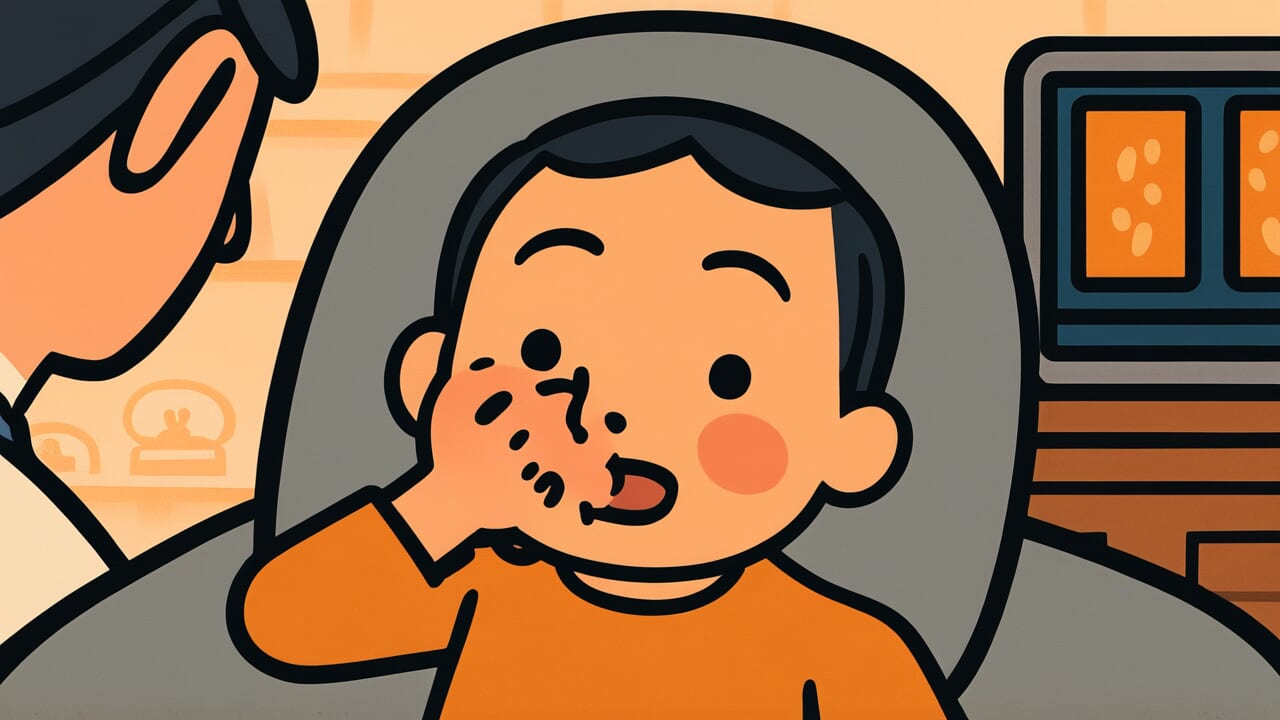How to Read “A child who will die has a beautiful face”
Shinuru ko wa mime yoshi
Meaning of “A child who will die has a beautiful face”
This proverb means that children with beautiful faces or exceptional talents tend to die young.
People mainly used these words to comfort parents and relatives who lost young children. When facing an unreasonable death, people seek some reason or meaning.
By thinking “this child died early because they were too beautiful and exceptional,” they tried to find a ray of light in their overwhelming grief.
Modern medicine has greatly reduced child mortality rates. However, people still sometimes use this proverb when mourning someone who died young.
You should avoid using it casually in front of bereaved families. No words are enough for people in deep sorrow.
It’s important to understand this proverb as a historical expression. It shows how our ancestors faced the pain of losing children.
Origin and Etymology
No clear records remain about when this proverb first appeared in literature. However, we can guess its background from the words themselves.
“Shinuru” is classical Japanese for “to die” in attributive form. “Mime yoshi” means “beautiful face.” People believe this expression was passed down orally since before the Edo period.
In those days, infant mortality rates in Japan were extremely high. Many parents experienced the sorrow of losing their children.
In an era with undeveloped medicine, protecting children’s lives was often impossible. This was true no matter how carefully parents raised them.
How could parents who lost beloved children accept their grief? Perhaps they tried to find meaning in unreasonable death by giving reasons like “because that child was beautiful” or “because they were exceptional.”
This was likely a kind of psychological defense mechanism.
The Buddhist idea of “all things are impermanent” also lies behind this proverb. So does the Japanese aesthetic that beautiful things are fleeting.
Like cherry blossoms that scatter soon after reaching full bloom, people deeply felt that excellent things are lost quickly.
Usage Examples
- That family’s eldest son was truly excellent, but “a child who will die has a beautiful face” describes this situation
- She died in her twenties, but they say “a child who will die has a beautiful face,” so she must have been a special person
Universal Wisdom
A deep psychological mechanism lies behind why people have passed down this proverb. It’s the human instinct to give meaning to unreasonable loss.
When we lose someone we love, we can’t help asking “why?” This question becomes more urgent when a young life is lost.
However, we often find no clear answer. Illness, accident, or death from unknown causes. People suffer precisely because they don’t know the reason.
“A child who will die has a beautiful face” was our ancestors’ answer to that unanswerable question.
They thought “this child left early because they were too beautiful and exceptional to need to stay in this world.” This gave a story to what seemed like meaningless death.
This is what psychology calls the “meaning-making” process. Humans cannot endure suffering without meaning.
That’s why we try to find some meaning in even the most painful events. Whether it’s true doesn’t matter.
If that story supports the hearts of survivors and gives them strength to move forward, it has enough value.
This proverb tells both stories. It speaks of the depth of human sorrow and the strength to overcome that sorrow.
When AI Hears This
Children who die young appear beautiful because we exclude “ordinary children who survived” from our observations. This is a classic example of survivorship bias in statistics.
In World War II, the American military examined bullet holes in returning fighter planes. They tried to reinforce those areas.
However, statistician Abraham Wald pointed out “we can’t examine shot-down aircraft.” He realized the areas without bullet holes were actually fatal.
This proverb has the same structure. We remember “beautiful children who died young,” but “ordinary children who lived long” disappear from observation.
For example, imagine a village with 100 children where 10 die young. In their grief, parents beautify their memories, thinking “that child was special.”
Meanwhile, the 90 surviving children blend into daily life. Nobody particularly talks about them.
So only the sample of “children who died young were beautiful” remains as a story.
In reality, there should be no correlation between dying young and appearance. However, our cognitive system overestimates rare events with strong emotions and makes the ordinary majority invisible.
This proverb brilliantly captures in words how human memory distorts statistical truth.
Lessons for Today
This proverb teaches us about diverse ways of facing grief.
Modern society has a strong tendency to explain everything scientifically and logically. This is beneficial in many situations.
However, logic alone isn’t always the answer for human emotions, especially deep sorrow.
When you lose someone important, statistics and probabilities offer no comfort. What you need then is to find some meaning in that loss and organize your feelings.
The words “a child who will die has a beautiful face” may not be scientifically correct. But they have functioned as a story that supports the hearts of people in grief.
When you stand beside someone’s sorrow, accepting their emotions matters more than giving correct explanations.
Also, when you experience painful loss yourself, don’t fear making your own meaning. Even if it’s not logical, it’s the right choice if your heart needs it to move forward.
Humans need not only reason but also wisdom to heal emotions. This proverb quietly teaches us the importance of balancing both.



Comments